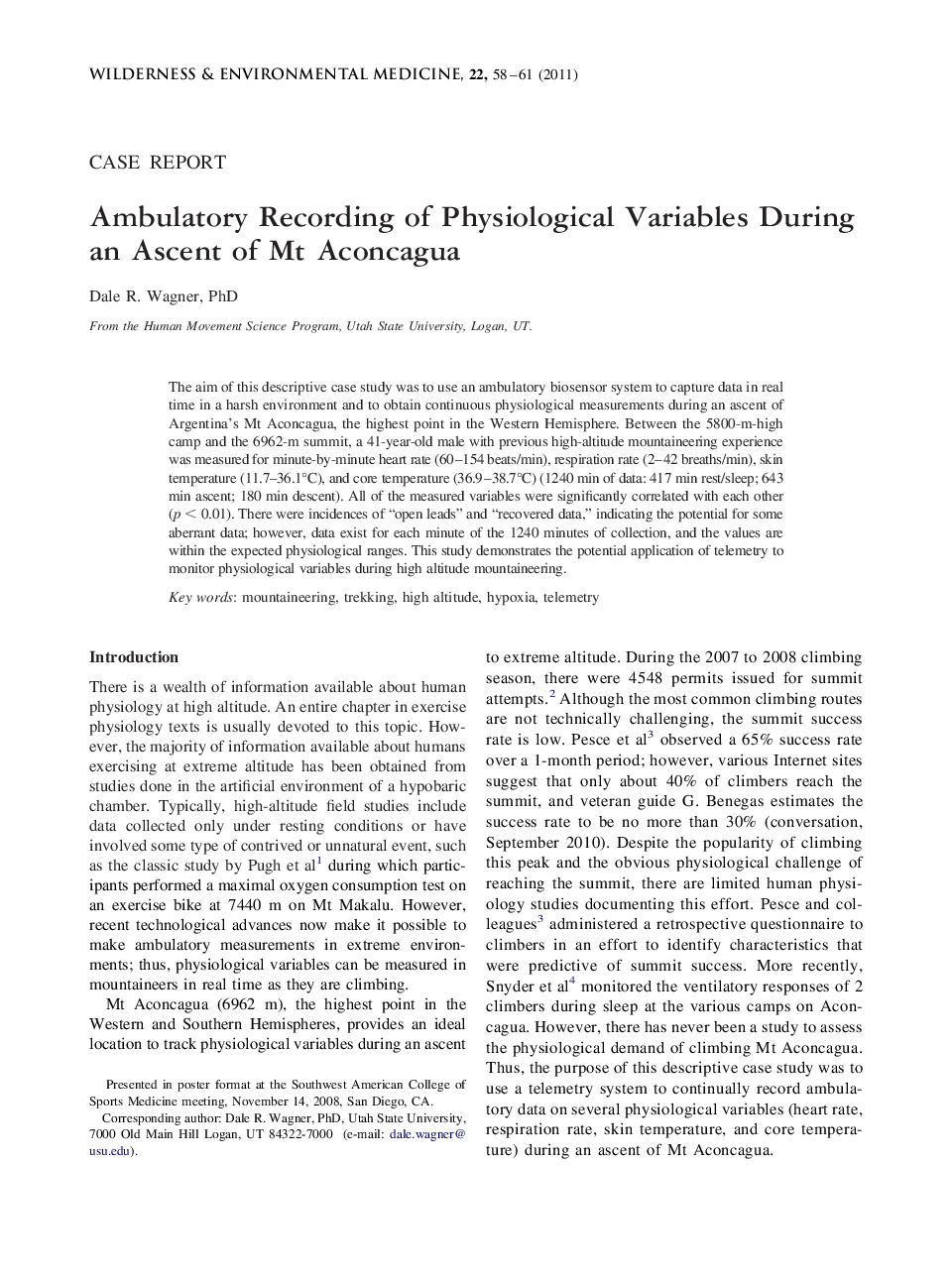| Article ID | Journal | Published Year | Pages | File Type |
|---|---|---|---|---|
| 2614563 | Wilderness & Environmental Medicine | 2011 | 4 Pages |
Abstract
The aim of this descriptive case study was to use an ambulatory biosensor system to capture data in real time in a harsh environment and to obtain continuous physiological measurements during an ascent of Argentina's Mt Aconcagua, the highest point in the Western Hemisphere. Between the 5800-m-high camp and the 6962-m summit, a 41-year-old male with previous high-altitude mountaineering experience was measured for minute-by-minute heart rate (60-154 beats/min), respiration rate (2-42 breaths/min), skin temperature (11.7-36.1°C), and core temperature (36.9-38.7°C) (1240 min of data: 417 min rest/sleep; 643 min ascent; 180 min descent). All of the measured variables were significantly correlated with each other (p < 0.01). There were incidences of “open leads” and “recovered data,” indicating the potential for some aberrant data; however, data exist for each minute of the 1240 minutes of collection, and the values are within the expected physiological ranges. This study demonstrates the potential application of telemetry to monitor physiological variables during high altitude mountaineering.
Related Topics
Health Sciences
Medicine and Dentistry
Emergency Medicine
Authors
Dale R. PhD,
